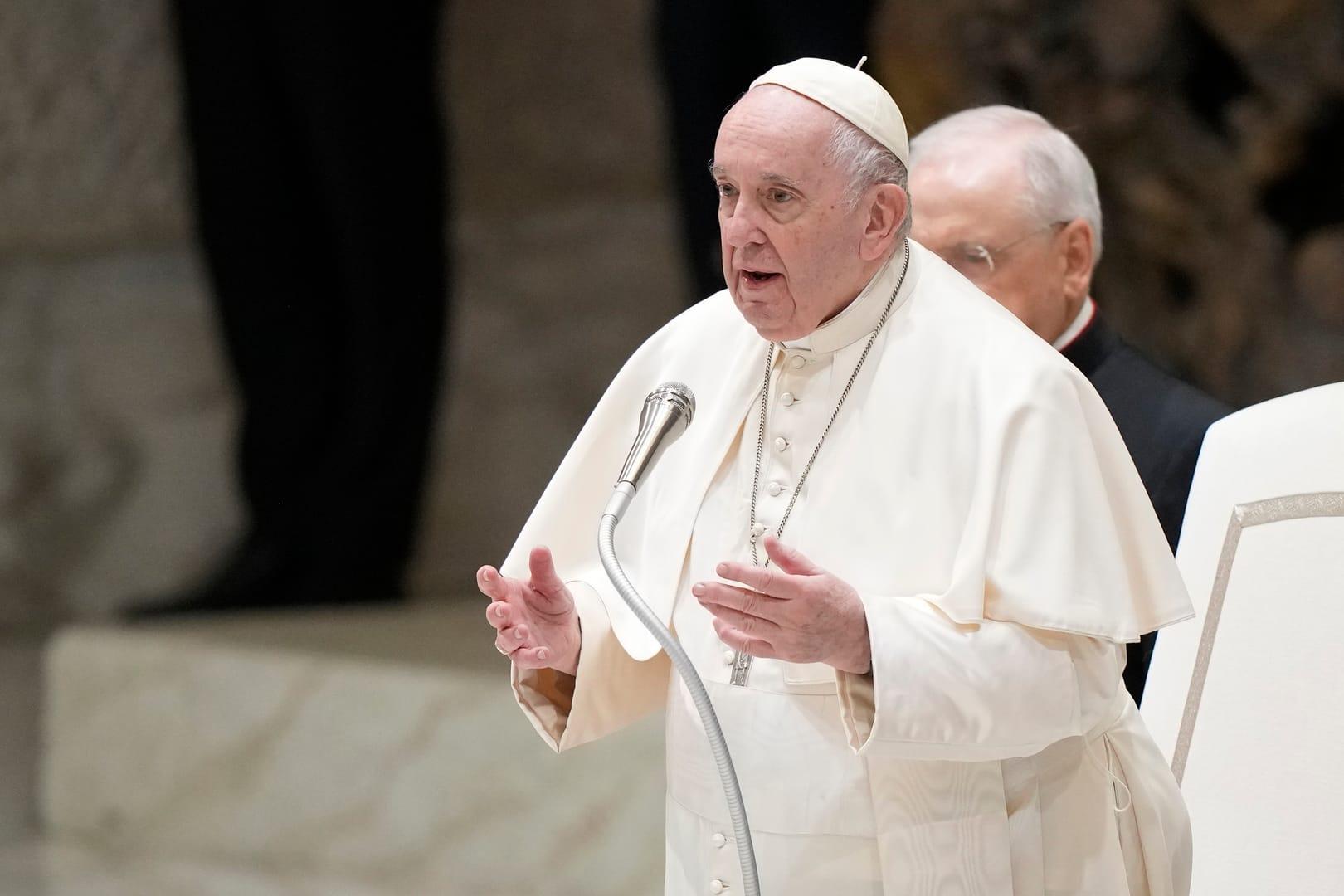ROME – In his annual year-end speech to members of the Roman Curia, Pope Francis took a swipe at Mother Angelica – not the 20th century American nun famed for her founding of EWTN, however, but a 17th century French abbess known for her involvement in a quasi-fundamentalist heretical movement.
In his Dec. 22 speech, Pope Francis focused on Christmas as a time of joy but also conversion, which he said is a lifelong process requiring faithful to always be vigilant.
To this end, he cited the Gospel passage in Luke in which Jesus warns that when an “unclean spirit” leaves a person, it wanders looking for another dwelling place, but not finding any, it returns to the place from which it came.
“When it comes, it finds it swept and put in order. Then it goes and brings seven other spirits more evil than itself, and they enter and live there; and the last state of that person is worse than the first,” the passage says.
To illustrate the point, Pope Francis recalled the example of Mother Angelica, known in French as Marie Angélique Arnauld, who was the abbess of the Cistercian Abbey of Port-Royal, located southwest of Paris, from 1602 to her death in 1661.
Under her leadership, Port-Royal became a hub of Jansenism, a heresy that placed strong emphasis on sinfulness and promoted a rigorist morality at odds with the Church’s concept of mercy.
In his speech, Pope Francis said the 17th century Mother Angelica began her abbacy well, and had “charismatically reformed herself and her monastery,” and was a “gifted woman, born to govern.”
However, eventually “she became the soul of the Jansenist resistance, intransigent and unbending even in the face of ecclesiastical authority,” the pope said, noting that the nuns in her abbey were often described as, “pure as angels but proud as demons.” [The quote is usually attributed to Archbishop Hardouin De Péréfixe of Paris.]
“They had cast out the demon, but he had returned seven times stronger, and under the guise of austerity and rigor he had introduced rigidity and the presumption that they were better than others,” Pope Francis said.
He also pointed to forms of conversion required by the elder and younger brothers in the parable the Prodigal Son.
“For those who set out and go astray, it is easy to recognize how far they have wandered; for those who remain at home, it is not easy to appreciate the hell they are living in, convinced that they are mere victims, treated unjustly by constituted authority and, in the last analysis, by God himself,” he said.
Everyone has had the experience of getting lost, he said, saying members of the curia need to be especially attentive, because “we are now living ‘at home,’ within the walls of the institution, in the service of the Holy See, at the heart of the Church.”
“Precisely for this reason, we could easily fall into the temptation of thinking we are safe, better than others, no longer in need of conversion,” he said, saying, “we are in greater danger than all others, because we are beset by the ‘elegant demon,’ who does not make a loud entrance, but comes with flowers in his hand.”
Pope Francis acknowledged that there are times when he says things to curia members “that might sound harsh and pointed,” but he insisted that when he says these things, “it is not because I don’t believe in the value of kindness and persuasion.”
“Rather, it is because it is good to keep our caresses for the weary and the oppressed, and to have the courage to ‘afflict the comfortable,’” he said, saying there are times “when the comfort they enjoy is only the deception of the devil and not a gift of the Spirit.”
He also noted that this year marked the 60th anniversary of the opening of the Second Vatican Council, calling it “a great moment of conversion for the entire Church.”
“Conversion is a never-ending story,” he said, saying the conversion that the Second Vatican Council initiated “was an effort to understand the Gospel more fully and to make it relevant, living and effective in our time.”
The opposite of conversion is “immobility,” which he said is “the secret belief that we have nothing else to learn from the Gospel.”
“This is the error of trying to crystallize the message of Jesus in a single, perennially valid form. Instead, its form must be capable of constantly changing, so that its substance can remain constantly the same,” he said, insisting that “to preserve means to keep alive and not to imprison the message of Christ.”
Francis made a special appeal for peace as the world is “anguished” by the prevalence of war and violence.
Peace, he said, “begins in the heart of every one of us” and requires each person’s contribution “by striving to uproot from our hearts all hatred and resentment towards the brothers and sisters with whom we live.”
“Let us ask ourselves: How much bitterness do we have in our hearts? What is feeding it? What is the source of the indignation that so often creates distances between us and fuels anger and resentment? Why is it that backbiting in all its forms becomes our only way of talking about the things around us?” he asked.
Francis warned not only against war, but also violence in other forms, such as verbal and psychological violence, as well as the abuses of power and the “hidden violence of gossip,” saying, “May none of us profit from his or her position and role in order to demean others.”
He closed his speech saying the power of God, who became a child and allowed himself to be nailed to a cross, “is always at work,” and prayed that gratitude, conversion and peace would be “the gifts of this Christmas.”
Follow Elise Ann Allen on Twitter: @eliseannallen











